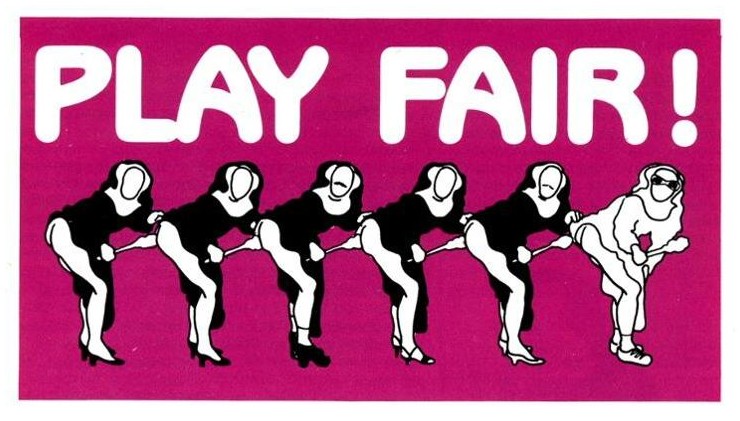I’ve been the occasion for a disagreement between private school administrators and ill-informed parents. Some background information about Quakers will make a couple of nuances to the story clearer. (This is a long post, and it’s not really all that exciting of a story. Lots of pedantry about Quakers and a little story at the end. You’ve been warned.)
First, Quakers, for a big chunk of their history between the first flush of enthusiasm (and evangelism) in the 17th century and the early 20th century, developed practices to separate themselves from “the world.” This was sometimes referred to as a hedge, and it played out in a number of ways: endogamy (only marrying within the faith); disownment (public statement that someone was not a member) for infractions of the discipline; criticism of involvement in antislavery or suffrage movements with non-Quakers.
And pertinent to this story, the creation of schools for Quaker children, in order to give them a “guarded” education. There are still many, many Friends schools in operation, from preschool to college. (There were also schools founded by Quakers for other purposes, such as educating formerly enslaved people or as part of missionary foundations.) The vast majority of students in these schools (at all levels) are not Quakers.
Second, traditional Quaker worship (what most liberals think of when they hear “Quaker” or talk about “silent meeting”) has a basic assumption that those who speak in worship are immediately inspired by the Spirit (God/Holy Spirit/Light Within; terminology varies). So, no previous determination that one will speak. This is still mostly observed in weekly meetings for worship that are based in silent waiting. But it is not the practice in meetings (or, as many of them are called, Friends churches) that employ a pastor, and many larger gatherings of Quakers have invited speakers who are at the very least expected to speak and frequently have announced their topic and may read from a prepared text.
Third, Philadelphia Yearly Meeting, to which I belonged when I lived in the area, has a large staff, but staff members do not have theological authority. (One might say that few Quakers in Philadelphia recognize *anyone* as having theological authority, but that’s another essay.) They do of course exercise authority and leadership, but they are hired, not called, and they are subject to the direction of the hiring body. Another kind of leadership, selected by the body and serving it in a volunteer capacity, is the clerk, who is the person who moderates meetings for business. This person also doesn’t have authority within worship, per se, but does wield a considerable amount of power and is often the public face of the yearly meeting.
Third and a half, the yearly meeting is called a yearly meeting because it has annual sessions to conduct business. There is a clerk of the yearly meeting. There is also, often, a body that may be appointed or may be representative, which meets between the annual sessions of yearly meeting and conducts business on its behalf. This body also has a clerk, which in Philadelphia Yearly Meeting is a different person than the clerk of yearly meeting.
Now, on to the story. I was at the time clerk of Interim Meeting, the continuing body of Philadelphia Yearly Meeting (thus, with the clerk of yearly meeting and the general secretary, one of the three most visible leaders). And I was invited by a friend to attend the weekly meeting for worship at the Friends school where she taught, with the expectation that I would speak. I was also invited to attend the spiritual life club (or some such name) at lunch, and to speak to her religion class in the afternoon.
Some Quakers of my acquaintance were mildly shocked that someone would be invited to speak in a meeting for worship, even if it was in a school. But people need to learn how to be in meeting, and Friends school administrators often feel that it is good for [non-Quaker] students to be exposed to the thoughts, concerns, and religious feelings of Quakers. So, I went and spoke and have absolutely no recollection of what it was I said. I think I quoted a scripture passage and did some interpretation.
The lunch meeting and class were very enjoyable. The students were engaged and interesting. During the lunch meeting, however, I found out that some students had been withdrawn by their parents from the meeting because I was gay. Turns out, there were conservative Christian parents in the area who did not do enough research about what Quakers in Philadelphia actually believe today. They just knew that there were these old, prestigious religious schools (they’re thick on the ground around Philadelphia), and assumed their children would have “safe” educations there.
There was a formal complaint to the school. I was, of course, a perfectly respectable choice within the context of the Quaker community of Philadelphia, and I knew this, so I was unconcerned about the kerfuffle on my behalf, but I worried about the effects for my friend and the school itself. (I mean, private schools depend upon serving a constituency that pays them.) There were meetings of the concerned parents with my friend and other administrators, and the school politely and firmly stood behind the invitation.
Wasn’t that anticlimactic? But let it be a lesson to you: don’t assume Quakers are like that quaint man on the box of oatmeal, because he’s long, long dead. Not to mention that he’s a marketing device created by non-Quakers.

